What was the first BMW Z car? Ask any American on the street and they’ll probably tell you the Z3, otherwise known as the car from the James Bond flick, Goldeneye. That answer would be incorrect. The first Z was the Z1, built between 1989 and 1991 with 8,000 copies produced. Noted mainly for its doors that retracted into the side of the vehicle, this roadster was based on E30 3 series mechanicals and featured new technology that would trickle down into the rest of the BMW range. The Z axle rear suspension would go on to be used in the E36 3 series and high intensity discharge lights would appear on many future BMW models. Curiously, no Z1 came fitted with air conditioning, as there was limited room in the interior for both heating elements and the cooling unit. This particular Z1 is for sale in just north of Hamburg, Germany.
Click for more details: 1989 BMW Z1 at Autodrom Cannes
Year: 1989
Model: Z1
Engine: 2.5 liter inline-6
Transmission: 5-speed manual
Mileage: 50,970 km (~ 31,671 mi)
Price: €37,500 (~ $50,992 USD)
Fun in the summer you can have with this car!
Super condition – new car condition
Garage vehicle
Maintained checkbook
All bills available
Sport exhaust systemWe are selling this vehicle on behalf of customers. We are happy to provide you with this car in person before! We look forward to your call!
One feature that people may not know about the Z1 is that the plastic body panels were designed to be easily replaced in case the owner wanted to change the color of the vehicle on a whim. I’m not sure how many owners really went through with getting an extra set of body panels, but it is a curious feature for a car to have. A few Z1s have made it to the US and values seem to hover around the $30,000 to $40,000 range for them. This one might be stretching it a bit by the time you include shipping and customs fees but maybe a few intrepid Bimmer fans will begin to import some of these, leaving a few in circulation for enthusiasts stateside.
-Paul
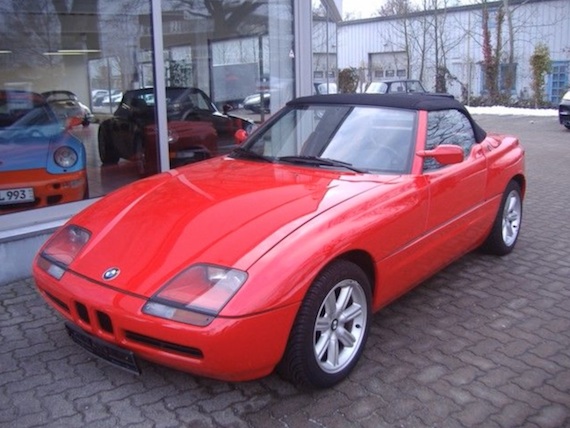
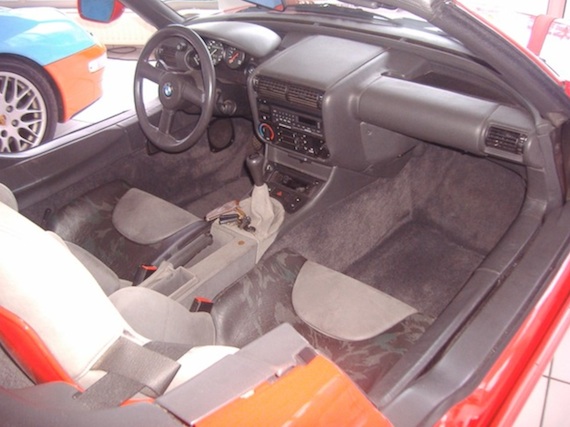
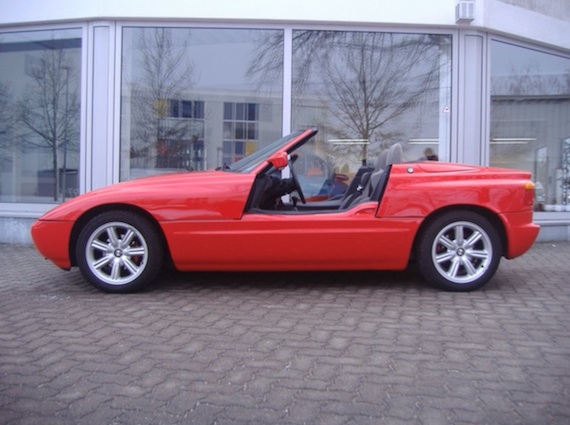
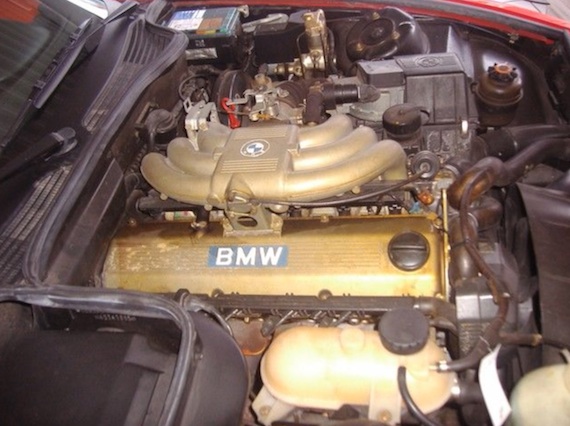

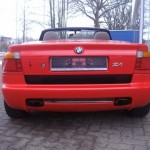


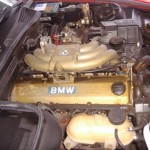

These kind of look like 5/8 scale C5 corvettes with an 8 series tribute bumper. I never looked at one long enough to notice the odd side mirror on a-pillar setup (that retractable doors probably dictate). The Z1 always looked kind of toyish to me, not because of the size, but the glossy plastic body panels. I’m curious what, if any, design constraints were imposed by the manufacturing process of these panels.
Such a weird design choice: retractable doors. Why? I mean, are they cool? Absolutely! Did they have any relevance from an engineering or technology position? I can’t see it.
Unless BMW was interested in entering into the long lapsed Jolly market….
JC, I think the design was to make a stiffer and lighter body than traditional doors could offer. Don’t forget, doors are big and heavy especially on coupes and cabriolets where they are longer and require more rigidity. It was also an attempt to help eliminate typical chassis vibrations when you lop the top off. I’ve never ridden in one so I can’t say that it worked – but considering Clarkson seemed to like it, it must have been at least halfway decent!
@JC – I think it was a call back to some classic European roadster designs like the Caterham 7 that could be equipped with tiny doors as sort of a low & very open design ethos. What’s pretty crazy is that the glass window looks like it is much taller than just the top door part, so it must retract down several inches into the actual body panel below.
I know that with such a small volume it would never have made economic sense to design one to US specs, crash test a handful of them, and equip & train north american BMW dealers to service and maintain them. . .but, I’m curious if, in that configuration, it would have passed US crash test standards in the years it was for sale.
This is a pretty funny Z1 Top Gear segment from a younger, much less polished era of Top Gear. . . 🙂
https://www.youtube.com/watch?v=P5OY0WhdIxs